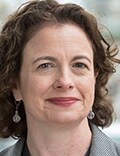The Oklahoma legislature is poised to consider a bill that critics say would deprive primary care practitioners of a much-valued resource in their efforts to promote healthy sex education: the library.
The proposed bill (SB1142), written by Sen. Rob Standridge (R; D-15), would prohibit publicly funded schools and school libraries from having or promoting any books that “address the study of sex, sexual preferences, sexual activity, sexual perversion, sex-based classifications, sexual identity, gender identity, or books that contain content of a sexual nature that a reasonable parent or guardian would want to know about or approve of before their child is exposed to it.”
The proposal would allow parents or guardians to request the removal of any title they feel violates the provision, which is scheduled to be introduced to the state legislature on February 7. If an employee does not remove the book within 30 days, they risk being fired. Parents can seek monetary damages against the school at a minimum of $10,000 per day that the offending title remains on the shelves. Standridge did not respond to multiple requests for comment for this story.
Oklahoma isn’t alone:
In Arkansas, parent-led groups are urging schools to ban specific books containing content related to sex, gender, and race.
In Texas, a state representative running for state attorney general as a Republican is investigating what books schools have in their libraries related to sex and race ― an effort that prompted at least one county’s library to temporarily close its doors while it conducted an audit of its collection for any of the more than 850 titles on the candidate’s list.
In one Virginia county, the school board recently abandoned a plan to remove certain books containing sexually explicit content from school after two members of the board said they wanted to see the books in question burned (those two members voted against rescinding the plan).
Physicians worry how these policies, if enacted, will affect both sex education and representation, particularly for LGBTQ+ youth. Some are calling on healthcare providers to fill in gaps in the sex education of their young patients.

Dr Kate Arnold
“The concept of having a book ban with censorship was so archaic and scary,” said Kate Arnold, MD, director of women’s health for Variety Care, in Oklahoma City, and vice chair of Oklahoma ACOG (the American College of Obstetricians and Gynecologists). “Libraries are a perfect place for kids to explore new topics safely. As a mom, I’d much rather have my kid go read a book than try to find videos on Google.” And, she added, “I really think representation matters.”
This Moment “Feels Different”
Young people in the United States receive less sex education now than they did 25 years ago, according to researchers at the Guttmacher Institute and Rutgers School of Public Health.

Dr Leslie Kantor
Their study, published last year in the Journal of Adolescent Health, also found many education inequities by race and gender. For example, Black and Hispanic boys were less likely than their White peers to get information about birth control and sexually transmitted infections. Meanwhile, girls were more likely to get information about saying no to sex, whereas boys received information about how to use condoms, said Leslie Kantor, PhD, MPH, chair and professor at the Rutgers School of Public Health, in New Jersey, and a co-author of the study.
Kantor has worked on controversies in sex education for her entire career but said this moment feels different. “For now, it feels like this is so much an expression of a political identity,” she said. “That it’s not about the kids at all ― and that’s what really worries me.”
Bills like the one in Oklahoma could end up targeting parts of the country that already provide young people with little in the way of sex education.
“You do tend to see these efforts at banning books in the same states and communities that already have very restrictive sex education,” Kantor said. “Books and access to information in the libraries is even more critical in many of these places because there may already be very limited sex education or abstinence-only until marriage information that withholds critical information.”
In Oklahoma City schools, for example, formal sex education tends to focus largely on prevention of HIV, with little attention to avoiding pregnancy, according to Arnold. The birth rate in 2019 for girls in the state age 15 to 19 was 27.4 per 1000, the fourth highest in the nation, according to Healthy Teens Oklahoma.
Although that figure is roughly half what it was 10 years ago, the nonprofit group laments that “while other states have made prevention a major priority, investing in educational programs and access to reproductive health services that really work, Oklahoma has not allocated state funding for teen pregnancy prevention in well over a decade.”
Pulling books containing sexual content from library shelves does not mean children at those schools suddenly will no longer be exposed to ideas ― and much more ― about sex. Far from it. Without age-appropriate content curated at their school library, Kantor said, children will be forced to navigate on their own the vast sea of information (and misinformation) available from friends and online.
“There’s not a choice about whether they’re going to hear about these topics; they are,” Kantor said. “The only question is, are they going to also hear about those things from trained, responsible adults in schools, or from library books, or from parents?”
“Information doesn’t put you at risk; it’s ignorance that puts you at risk,” echoed John Santelli, MD, MPH, a professor of population and family health and pediatrics at Columbia University’s Mailman School of Public Health, New York City.
Despite fears of some parents and politicians, reading materials are “a safe educational tool” compared to other options, like social media, which can pull children and adolescents into dangerous online spaces, Patricia Huguelet, MD, a pediatric and adolescent gynecologist at Children’s Hospital Colorado, Aurora, said.
For younger children in particular, books can offer age-appropriate ideas about sexual orientation and gender identity. “I don’t think we want 7-year-olds just going on the internet and finding what they can find,” Kantor said.
Experts are particularly concerned that the Oklahoma legislation targets LGBTQ+ topics. “We are in Oklahoma, we are in the Bible Belt, we are in a place where parents may not want their kids knowing anything about people who do not identify as cis and straight,” Arnold said.
A school atmosphere that supports LGBTQ+ individuals boosts the health and happiness of those students, said Mary Romano, MD, MPH, a specialist in adolescent medicine at Vanderbilt Children’s Hospital, Nashville, Tennessee.
Lack of representation can be especially harmful for children who receive signals at home that their gender or sexual identity is not “normal,” Arnold added. “We know kids who receive messages that they aren’t accepted or aren’t normal do have higher rates of running away, of suicide, of depression,” she said.
What Physicians Can Do
Physicians can provide sexual health information that may be missing in formal education settings. “Doctors and other medical providers have a critical role to play, always, in providing young people and parents with information related to sexuality,” Kantor said.
Guiding patients to medically sound sources of information is one way physicians can help educate their patients. Young people often get their news on platforms like TikTok, which can be rife with misinformation. “Helping young people know where they can go for accurate health information — this may be one of the most important health skills we can give people now,” Kantor said.
Physicians also can provide adolescents with a safe space to ask questions about sex and sexuality. Making time for adolescents to talk confidentially about these topics without a parent in the room is critically important ― a point stressed in 2020 guidelines from ACOG for the first reproductive health visit for adolescents.
When starting a conversation about sex with a young patient, do not assume they know what you are talking about, Huguelet advised. Begin by asking questions about what lessons they’ve had in school and what conversations they’ve had with parents. If patients are receiving information online or from friends, they may well be misinformed. The young pop star Billie Eilish recently spoke out about this phenomenon, revealing in an interview that her experiences watching pornography online at age 11 warped her views of healthy sexual expression for years to come.
Outside of a clinical setting, medical professionals can help by speaking out in public about health, Santelli said: “We have an obligation to our patients but we also have an obligation to the community. People want to hear what we have to say.”
Jillian Mock is a freelance science journalist based in New York City. She writes about healthcare, climate change, and the environment. Her work has appeared in many publications, including the New York Times, Audubon Magazine, and Scientific American.
For more news, follow Medscape on Facebook, Twitter, Instagram, and YouTube.
Source: Read Full Article
